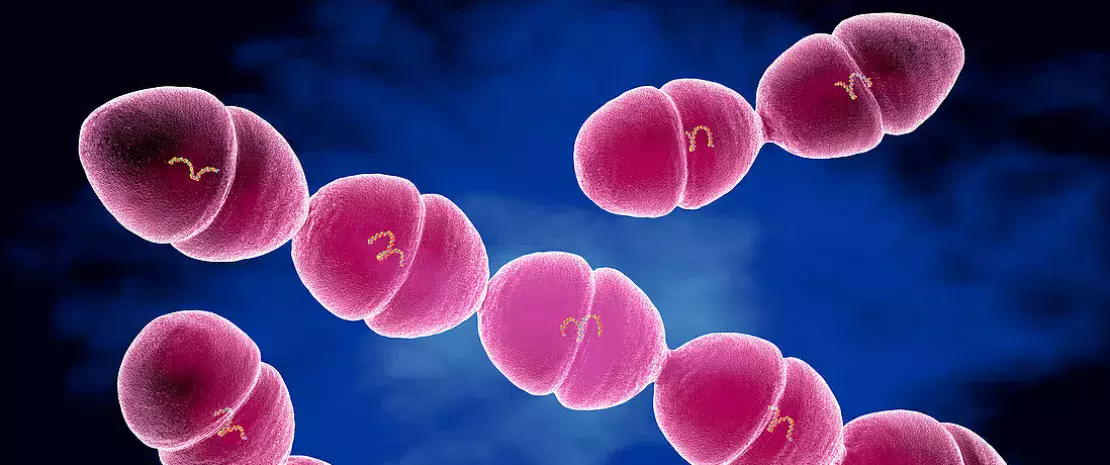Does the gut microbiota orchestrate pathogenic mechanisms in Parkinson’s disease?
According to a major metagenomic study published in Nature Communications1, Parkinson’s disease is accompanied by a widespread gut dysbiosis that may be involved in several of the disease’s pathogenic mechanisms.
Lay public section
Find here your dedicated section
Sources
This article is based on scientific information

About this article
Parkinson’s disease is a significant cause of disability and death. The prevalence of the disease has doubled in the past 25 years, with an estimated 8.5 million people affected as of 20192. The disease’s etiology remains poorly understood, but it may be caused by a combination of genetic susceptibility and environmental factors. Parkinson’s disease is a neurodegenerative disorder that is now considered both a movement disorder and a multi-systemic disease. The connection between the disease and the digestive system has long been established, with symptoms including constipation (generally the earliest sign), a compromised gut barrier, and inflammation.
8.5 million Parkinson's disease affected 8.5 million people worldwide in 2019.
The hypothesis that an enteric bacterial neurotoxin triggers the disease (Braak’s hypothesis) is gaining increasing scientific support. However, all studies focusing on the gut microbiota have given mixed results due to the use of cohorts of limited size and low-resolution sequencing technology.
Largest study of gut microbiome to date
A research team in the US put together a cohort of unprecedented size, including 490 Parkinson’s patients and 234 neurologically healthy controls. About 50 variables were analyzed, such as the presence of digestive disorders, medication intake, and diet. The participants’ gut microbiome was analyzed via deep shotgun sequencing.
Unsurprisingly, constipation was much more common in the Parkinson’s group. At the microbiome level, up to 30% of the species, bacterial genes, and signaling pathways were altered in the Parkinson’s patients. 55 species were more abundant in the Parkinson’s patients, including Bifidobacterium dentium, Actinomyces oris, Streptococcus mutans, and Lactobacillus fermentum, while 29 others were depleted, including Roseburia, Eubacterium, Ruminococcus, and Faecalibacterium prausnitzii, species known to produce
(sidenote:
Short chain fatty acids (SCFA)
Short chain fatty acids (SCFA) are a source of energy (fuel) for an individual’s cells. They interact with the immune system and are involved in communication between the intestine and the brain.
Silva YP, Bernardi A, Frozza RL. The Role of Short-Chain Fatty Acids From Gut Microbiota in Gut-Brain Communication. Front Endocrinol (Lausanne). 2020;11:25.
)
Major dysbiosis promotes known mechanisms for the disease
Several mechanisms characteristic of Parkinson’s disease were thus identified. Among the 55 species enriched in the gut microbiota of Parkinson’s patients, 11 are opportunistic pathogens (Porphyromonas asaccharolytica, Escherichia coli, Klebsiella) that have lipopolysaccharides on their surface. Lipopolysaccharides cause an immune reaction by releasing pro-inflammatory cytokines into the body.
On the other hand, there was a reduction in species, genes, and pathways that degrade polysaccharides and produce SCFAs. In the gut, inadequate levels of SCFAs were linked to constipation, a weakening of the gut barrier, and inflammation, all characteristic symptoms of the disease.
They also found a dysregulation in the synthesis and metabolism of neuroactive molecules dopamine, glutamate, GABA, and serotonin; preponderance of molecules that induce alpha-synuclein pathology and over-production of toxicants; and a reduction in anti-inflammatory and neuroprotective factors, such as nicotinamide or trehalose.
The researchers thus confirm observations previously made in animals. They intend to further their investigations by continuing to study the gut microbiome: it may be possible to define subtypes of the disease and identify biomarkers for disease progression, while manipulating it may allow us to prevent, treat, and slow progression of the disease.








